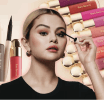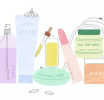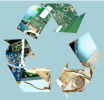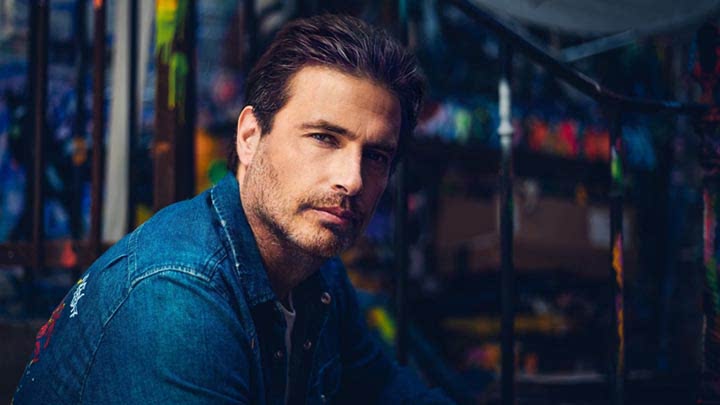Organic, Vegan Or Paraben Free In Beauty: A Necessity Or Marketing Claim?

Nowadays beauty brands use a bunch of marketing terms such as cruelty free, gluten free, organic… In theory, this should help us to navigate this huge beauty market available today, but in reality we are left overwhelmed by all the options we have. In this article, we are going to share with you the meanings behind the most popular inscriptions on your beauty jars, and whether it is worth focusing your attention on it while shopping.
 Natural. As far as we know there are no clear rules by which one moisturizer can be labeled as natural, and the other can not. There is no criteria for “naturalness”, so the manufacturer can label any of its face creams as “natural”. Usually, beauty products which contain more plant ingredients than synthetic ones in its formula are called natural. But ingredients are never added to your face cream straight from your grandma’s garden; each plant goes through many technological stages before it gets into your moisturizer. That means natural ingredients go through many developing stages; “natural” ingredients are processed not only mechanically, but also chemically.
Natural. As far as we know there are no clear rules by which one moisturizer can be labeled as natural, and the other can not. There is no criteria for “naturalness”, so the manufacturer can label any of its face creams as “natural”. Usually, beauty products which contain more plant ingredients than synthetic ones in its formula are called natural. But ingredients are never added to your face cream straight from your grandma’s garden; each plant goes through many technological stages before it gets into your moisturizer. That means natural ingredients go through many developing stages; “natural” ingredients are processed not only mechanically, but also chemically.
Contrary to popular belief, natural beauty products do not always guarantee efficacy or safety. Quite the opposite: natural beauty is more allergic than “chemical”, irritates the skin more often, and has a significantly worse storage life.
 Organic. Usually this term means that the brand has a certificate from one or more organizations that evaluate the degree of organic cosmetics. There are quite many of these organizations, for example, EcoCert is the most popular one. These organizations have slightly different requirements for beauty products, but, in general, this means that 90 to 100% of the ingredients in the product meet the requirements that each organization sets.
Organic. Usually this term means that the brand has a certificate from one or more organizations that evaluate the degree of organic cosmetics. There are quite many of these organizations, for example, EcoCert is the most popular one. These organizations have slightly different requirements for beauty products, but, in general, this means that 90 to 100% of the ingredients in the product meet the requirements that each organization sets.
What are these requirements? Usually they relate to the environmental conditions in which raw materials are grown, and the composition of the ingredients. For example, EcoCert prohibits the use of synthetic fragrance and dyes, mineral oil and SLS (known as Sodium Lauryl Sulfate) in cosmetics, as well as pesticides and the use of GMOs on plantations. It clearly states that the production itself should not harm our nature.
 Vegan. This means that a company does not use any substances of animal origin in its cosmetics, even those when during the collection process of it the animals are not harmed (beeswax, lanolin, and so on). However, vegan cosmetics may contain palm oil (and as we know, its extraction is responsible for the death and displacement of many animals). Some products with a Vegan label can also be tested on animals, so if that’s important for you, it is always better to choose products that are labeled as Vegan and Cruelty Free at same time. Interesting fact: the Vegan badge is issued only by The Vegan Society in the UK.
Vegan. This means that a company does not use any substances of animal origin in its cosmetics, even those when during the collection process of it the animals are not harmed (beeswax, lanolin, and so on). However, vegan cosmetics may contain palm oil (and as we know, its extraction is responsible for the death and displacement of many animals). Some products with a Vegan label can also be tested on animals, so if that’s important for you, it is always better to choose products that are labeled as Vegan and Cruelty Free at same time. Interesting fact: the Vegan badge is issued only by The Vegan Society in the UK.
Paraben, Sulfate or Silicone Free. In recent decades, cosmetics have started to play a significant part of our lives, so that people began to pay more attention to ingredient lists. And marketers reacted to this pretty quickly. On the Internet, you can find a lot of articles stating that some components of cosmetics cause cancer and are toxic, but in the vast majority of cases this is not true.
All cosmetics, if certified (meaning sold in a big or small, but trustworthy store), are safe for humans. Of course, cosmetic requirements vary from country to country. For instance, in the EU, the rules are more strict than in the US. Therefore, the composition of the same product for these regions will differ. Some components will be used less in the formula, the others will be used more, or be replaced by similar ones.
Many people believe that parabens cause cancer, but this has not been proved at all. Other people think that sulfates are aggressive, but this is not true for all sulfates. There is also a popular belief that mineral oil does not allow our skin to "breathe", but our skin actually does not breathe.
 Paraben, Sulfate or Silicone Free. In recent decades, cosmetics have started to play a significant part of our lives, so that people began to pay more attention to ingredient lists. And marketers reacted to this pretty quickly. On the Internet, you can find a lot of articles stating that some components of cosmetics cause cancer and are toxic, but in the vast majority of cases this is not true.
Paraben, Sulfate or Silicone Free. In recent decades, cosmetics have started to play a significant part of our lives, so that people began to pay more attention to ingredient lists. And marketers reacted to this pretty quickly. On the Internet, you can find a lot of articles stating that some components of cosmetics cause cancer and are toxic, but in the vast majority of cases this is not true.
All cosmetics, if certified (meaning sold in a big or small, but trustworthy store), are safe for humans. Of course, cosmetic requirements vary from country to country. For instance, in the EU, the rules are more strict than in the US. Therefore, the composition of the same product for these regions will differ. Some components will be used less in the formula, the others will be used more, or be replaced by similar ones.
Many people believe that parabens cause cancer, but this has not been proved at all. Other people think that sulfates are aggressive, but this is not true for all sulfates. There is also a popular belief that mineral oil does not allow our skin to "breathe", but our skin actually does not breathe.
 Cruelty Free. These are cosmetics that are not tested on animals, and its components are not tested either. To be fair, only a few cosmetics are tested on animals these days: it is just too expensive and energy-consuming.
Cruelty Free. These are cosmetics that are not tested on animals, and its components are not tested either. To be fair, only a few cosmetics are tested on animals these days: it is just too expensive and energy-consuming.
In Europe, animal testing is prohibited at all. Instead, laboratory cells are used in testing, artificial skin, computer models, chicken eggs, semen, and bull's eyes (it's a by-product of animal husbandry).
Unfortunately, it is not the case with China. All cosmetics that are imported to China are always tested on animals (except for online purchases), because this is required by local laws. Moreover, these tests are not carried out by the companies themselves, but by Chinese government organizations. Cosmetics that are made in China are not tested on animals (with the exception of special cosmetics like bleach and hair dyes).
Cruelty free badges are issued by many organizations. For instance, Leaping Bunny issues it on the condition that the individual cosmetic ingredients and the final product have not been tested on animals by either the company itself, or ingredient suppliers, or government organizations. And in the production of cosmetics should not be animal cruelty. This one differs from the Vegan badge; in some cases, Vegan cosmetics may contain substances of animal origin (for example, beeswax).
However, if there is no cruelty free sign on the jar, this does not necessarily mean that cosmetics are tested on animals. In order to get this badge, you need to pay an organization that “distributes” badges, and not every company can afford it. Therefore, the companies without such a badge can have no animal testing, but those who do not test but paid for having it can have a badge.
 Sustainable Materials. With the growing interest in healthy lifestyles and concerns surrounding our planet, many consumers are also starting to wonder how ingredients and its use affects the environment. An important aspect of it is also the packaging.
Sustainable Materials. With the growing interest in healthy lifestyles and concerns surrounding our planet, many consumers are also starting to wonder how ingredients and its use affects the environment. An important aspect of it is also the packaging.
Sustainable Materials means manufacturers choose materials that are recyclable or biodegradable to reduce the environmental impact. In other words, the cosmetic ingredients and its packaging should not harm our planet. Products should be made from naturally derived ingredients with renewable resources, whilst ideally the most sustainable packaging is zero waste (compostable cardboard, reusable jars, or products like soap bars that almost don’t require any special packaging). Waste is a huge problem for our planet, so it is good to know that more companies are consciously creating their products, even though greenwashing still exists and no beauty brand is perfect.

















